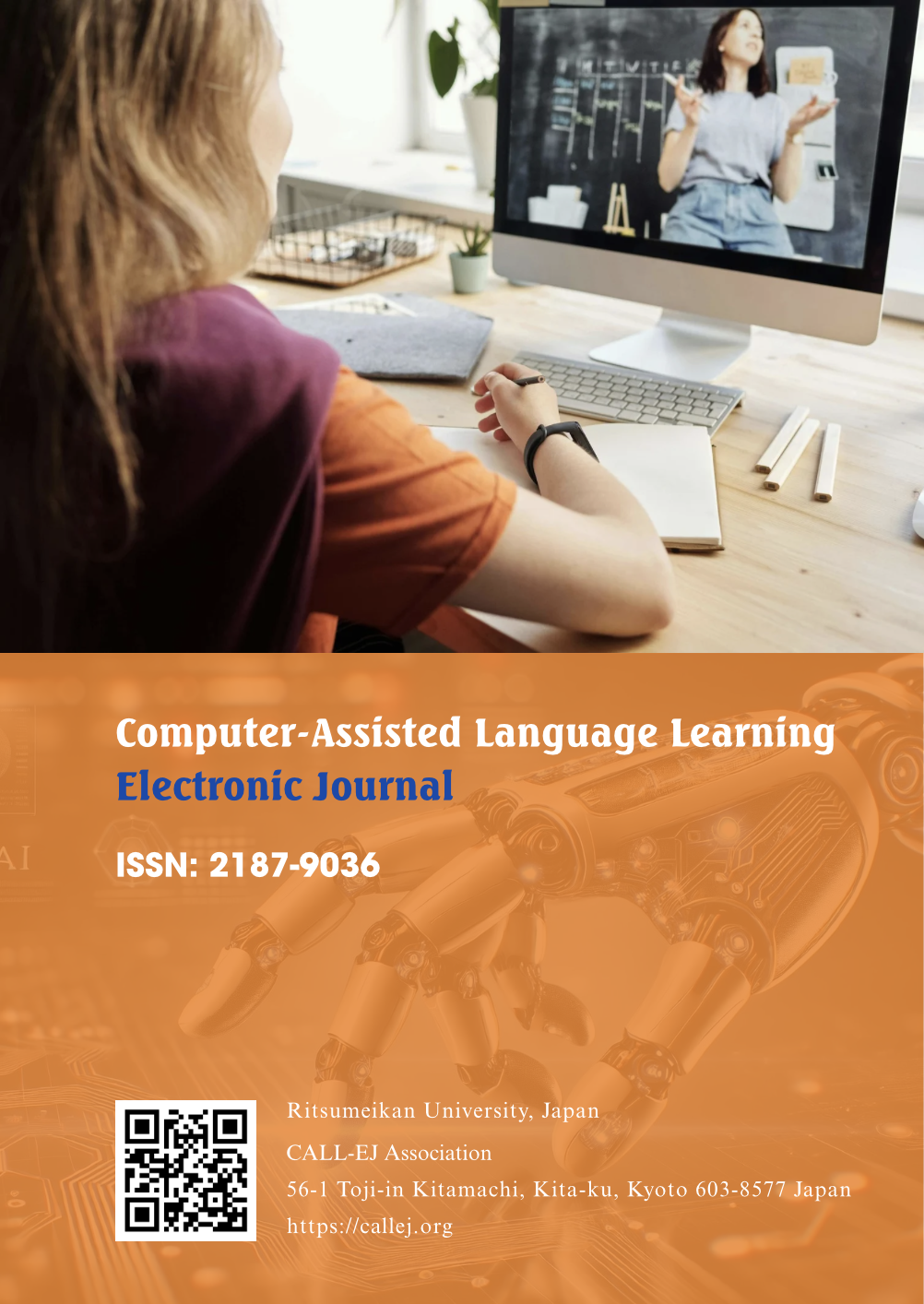How AI-Powered Voice Recognition Has Supported Pronunciation Competence among EFL University Learners
DOI:
https://doi.org/10.54855/callej.252634Keywords:
AI, pronunciation competence, voice recognitionAbstract
This study investigates the extent to which AI-powered voice recognition technology supports and enhances pronunciation competence among EFL learners and scaffolds instructional practices. A 4-month experiment was conducted with 37 first-year English majors, integrating this technology developed in the ELSA Speak App into classroom activities and self-study sessions during a pronunciation course. Students’ progress was evaluated through pretest and posttest scores, as well as daily practice records. Findings from the study revealed a strong relationship between the frequency and intensity of practice with the AI tool and improvements in students' pronunciation competence. Repeated and targeted drills contributed to noticeable enhancements in pronunciation accuracy, while teacher guidance was essential in facilitating learners' progress. The students reported that they had employed the tool to accommodate their diverse learning needs and strategies. Despite technical issues and variations in accent recognition, the participants demonstrated positive attitudes toward the technology, recognizing its value in pronunciation instruction. Future research should explore the long-term impact of AI-powered tools on pronunciation improvement and their applicability across diverse linguistic and cultural contexts.
References
Downloads
Published
Issue
Section
License
Copyright (c) 2025 Author and CALL-EJ

This work is licensed under a Creative Commons Attribution 4.0 International License.
Copyright of articles is retained by authors and CALL-EJ. As CALL-EJ is an open-access journal, articles are free to use, with proper attribution, in educational and other non-commercial settings. Sources must be acknowledged appropriately.

